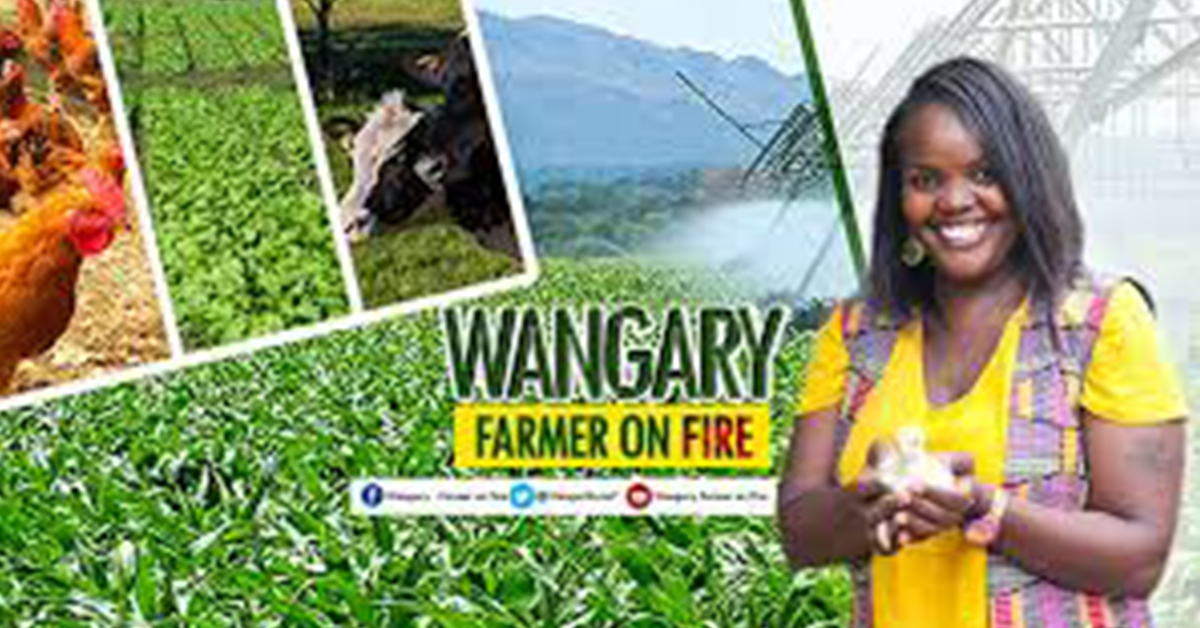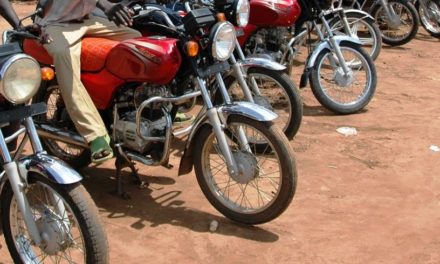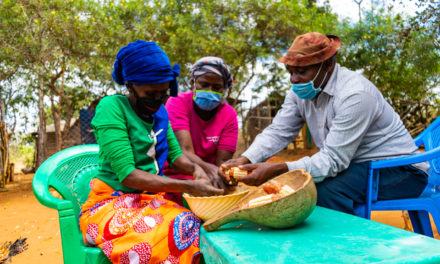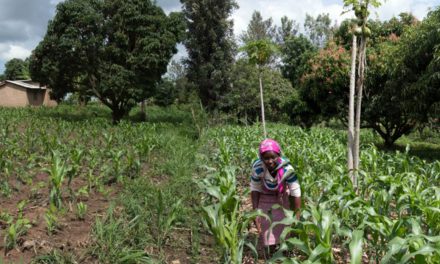
WANGARY KURIA- The Farmer On Fire

“I started selling fresh vegetables to neighbours and with time I expanded my venture into sections that have mushrooms, greenhouse tomato farming, vegetables, strawberry and onion farming.”
NAIROBI – KENYA: Wangary Kuria, 36, is the founder of Farmer on Fire. This is an agribusiness brand whose presence on digital platforms is quite impressive.
The urban farmer, based in Nairobi City, did not start on the farm. Wangari had a promising career in the corporate world, after graduating with an impressive MBA from United State International University, USIU.
But the music would suddenly stop when she found herself jobless after a retrenchment swept through her place or work. “I was on my own, left to fend for myself. This was a total identity change in spite of the dreams I had,” she said in an interview. But life had to go on.
After the shock of losing a job, and with no choices and mouths to feed, she would tap into her childhood memories and experiences of farming in her upcountry home of Nyandarua, and invested these skills into a small kale and spinach kitchen garden. That, she says, is what grew into all this.
Wangary is happily farming in Kitengela, a residential suburb within the Nairobi metropolitan. She is an avid digital farmer as she runs a Youtbe channel plus a blog to entice the youth through making farming cool and easy to do.
She had not saved up for such eventualities, but after asking permission to use her neighbour’s plot of land, she planted a few vegetables. They would do quite well, giving her surplus to sell.
“I started selling fresh vegetables to neighbours and with time I expanded my venture into sections that have mushrooms, green-house tomato farming, vegetables, strawberry and onion farming.”
Located in the plains of Kitengela, Kajiado County experiences water scarcity. However, Wangary did not let this deter her. At first, she would source for water from a water bowser that would ferry water from town to her farm. For that, she would pay Kenya Sh2,000 to get 5,000 litres of the borehole water.
“I needed about three trucks every month, which was very expensive, because it’s very hot and little shade in Kajiado and plants need a lot of water.”
This required Wangary to talk to her neighbor who had sunk a borehole. The neighbor was kind enough to agree to a deal, and is pipping water whereby she pays at the end of the month as per consumption.
For agricultural inputs, her MBA knowledge comes in handy. She does not purchase expensive fertilisers or spend money in spraying.
“I like the project to fund itself. I have taken a few loans from a women’s welfare table banking in my area where I am a member. I use the money to buy water tanks. All my proceeds go towards expansion,” she said.
The hot Kajiado weather is also a blessing since the water drains off fast before flooding the crops. She ensures that the farm is very well drained, with deep trenches between the beds.
The venture is not without its major challenges, and she points out the poor road network,which becomes a hindrance whenever the rains come.
The other is pest control which she cannot do using chemicals, since she has gone the organic farming way. For this, she makes organic manure and traditional pest control preparations, all which she shares with audiences on Youtube.
To market, she continually updates her social media followers on what is ready for sale. Among the most powerful tools for her are photos and short videos, where she takes her fans through her day or on tours of the farm. She also has a network of Mama mbogas or grocery sellers who come to buy their wares from her farm, for onward sale to consumers. She is not about to stop this agribusiness venture. Instead, Wangary wants to go fully into it. She has begun commercial farming of onions.
“My dream is to have 100 acres of serenity and horticulture for the local and export market.” To spruce up your farming, catch up with the farmer on fire during her 21-day challenges, which she does as part of engagement with her followers, and as well share knowledge with her target audiences.
On those programs, you will learn tips such as how to make organic manure, or how to mulch your kitchen garden, among other great ideas. Expect this teaching opportunity to expand to short courses on urban farming, as she is eyeing that, in efforts to change how Africa looks at farming.
“We see farming backward and for peasants. Our parents also believe in white collar jobs. They need to change their perception; farming can be profitable. We also need to take farming as serious business that needs persistence and consistency, and not treat farming as a side hustle,” she says.
Her advice to young farmers is to be patient. Do not expect to become millionaires within the first season, or fearing if the farming fails, you abandon it. As a person who once braved Nairobi traffic to and from work, she reveals that farming is more fun.
“It gives me the opportunity to see the impact that I am making, rather than being a cog in a big corporate wheel. It only needs low capital and so anyone can start anytime,” says the farmer on fire who grows her strawberries in containers because she has no land, yet the sales keep coming in.





















Recent Comments